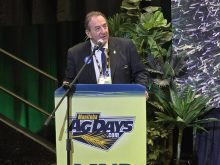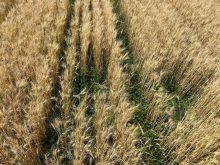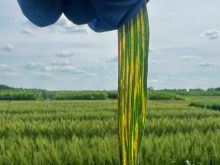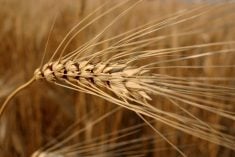Will and Jen Bergmann don’t believe they’re special. The only thing that sets them apart from other farmers, says Will, is how they share their story.
It’s a story about modern farming and what it takes to feed the world, whether farmers are growing commodity crops or organic vegetables. The Bergmanns grow both, and now that they’ve been recognized as regional finalists in Canada’s Outstanding Young Farmers competition, their stories about life on the farm will travel even further.
Will’s family has run a grain and finishing hog operation near Glenlea, Man., since 1925. Eight years ago, Will and Jen bought out one of Will’s uncles’ shares in the operation, moved to Glenlea and started farming with Will’s dad and uncle. But they put their own stamp on the business: they added an organic vegetable garden, opened a Community Supported Agriculture (CSA) subscription service and began marketing fruit and produce, microgreens and edible flowers to Winnipeg chefs and restaurants. They also partnered with Winnipeg chefs to open their own restaurant, Oxbow, named, Will says, as a tribute to Manitoba farms and farmers.
Read Also
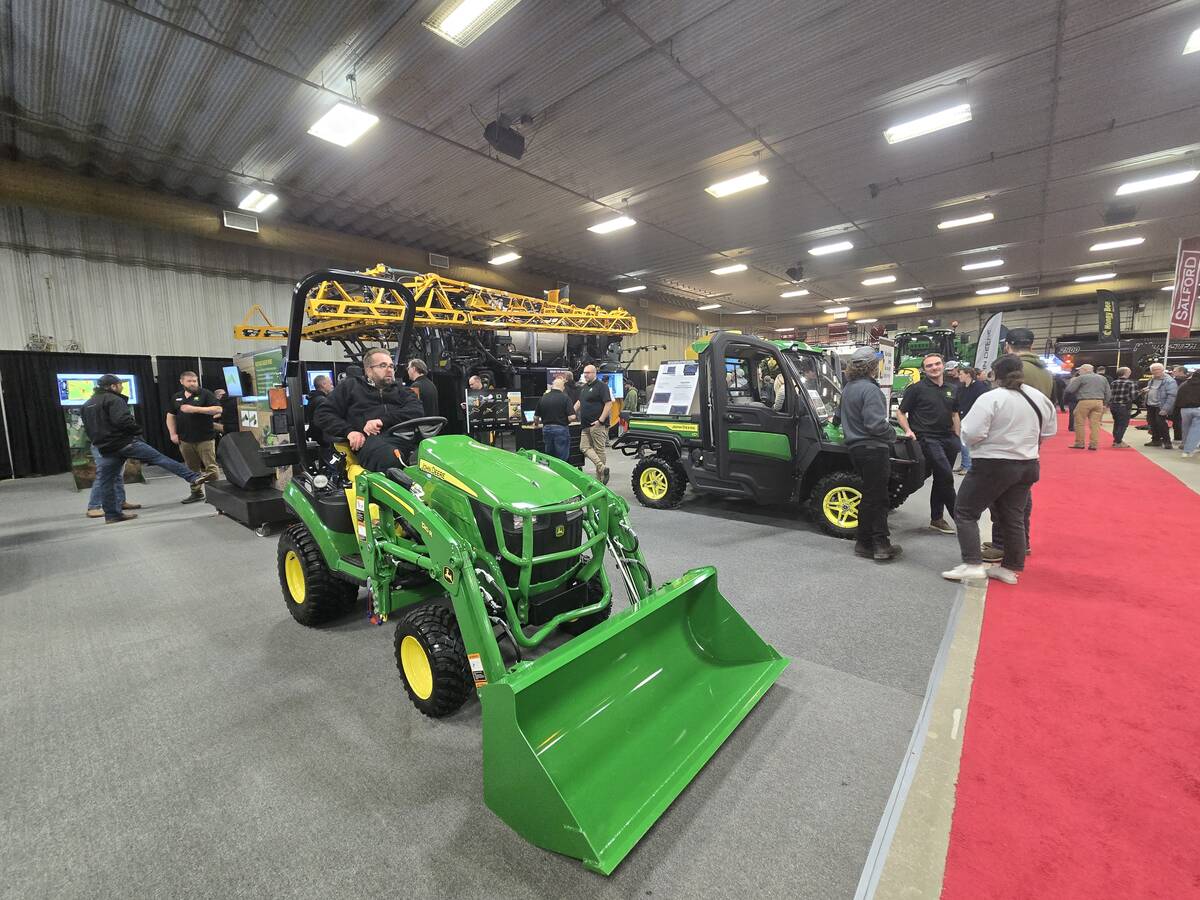
Manitoba John Deere dealers plan merger
Two retail dealership chains handling John Deere farm equipment in Manitoba say they plan to merge, bringing 13 locations under one organizational umbrella.
The Bergmanns have always shared a love of photography, and they harness that passion to share stories about #farmlife on social media — as well as the occasional photos of their kids, Brooklyn, seven; Cole, six; and Emmett, four.
“Farmers all understand that we’re feeding the world but we generally look at it as a commodity rather than filling bellies. But it is that,” says Will. “A while ago we started posting videos on social media about filling the combine hopper, and how many loaves of bread that represented. It helped people to see what it means for us to feed people.”
Will says social media is a “huge” part of the Bergmanns’ efforts to educate consumers. “All the opportunities we’ve had would not have happened without social media,” he says — from partnerships with chefs to connections with the urban population that buys their produce.
It’s crucial for conventional farmers to share what they do on the farm with an urban audience, he adds, because conversations about farms and farming are often led by small-scale producers with a particular point of view. Because they run both a conventional grain farm and a small-scale market garden, Will and Jen can see both sides of the coin.
“My goal is to be able to say that we want safe, nutritious, affordable food for everyone, and it will take all kinds of farms, farming all kinds of ways, to make that happen,” he says.
Over the past several years Will and his father and uncle have placed a major emphasis on data collection and management on the farm. “Even if we can’t process all of it yet, we believe it’s going to be important to the future of farming,” he says. “Data is the new currency, and data-based decisions have become increasingly important on our farm. That will increase exponentially.”
It’s tempting to rely on intuition when making farming decisions, but Will believes it’s more helpful to take emotion out of the equation when it comes to running his operation. “Margins are tight, land values are higher, and we have to become better businesses,” he says.
And a major part of running a farming business, for the Bergmanns, is communicating the value of that business to the public. For Will, it’s about more than just earning a social license to operate. It’s about communicating his passion for life on the farm. “I keep looking for better ways to engage the public,” he says. “That’s how I look to the future.”




